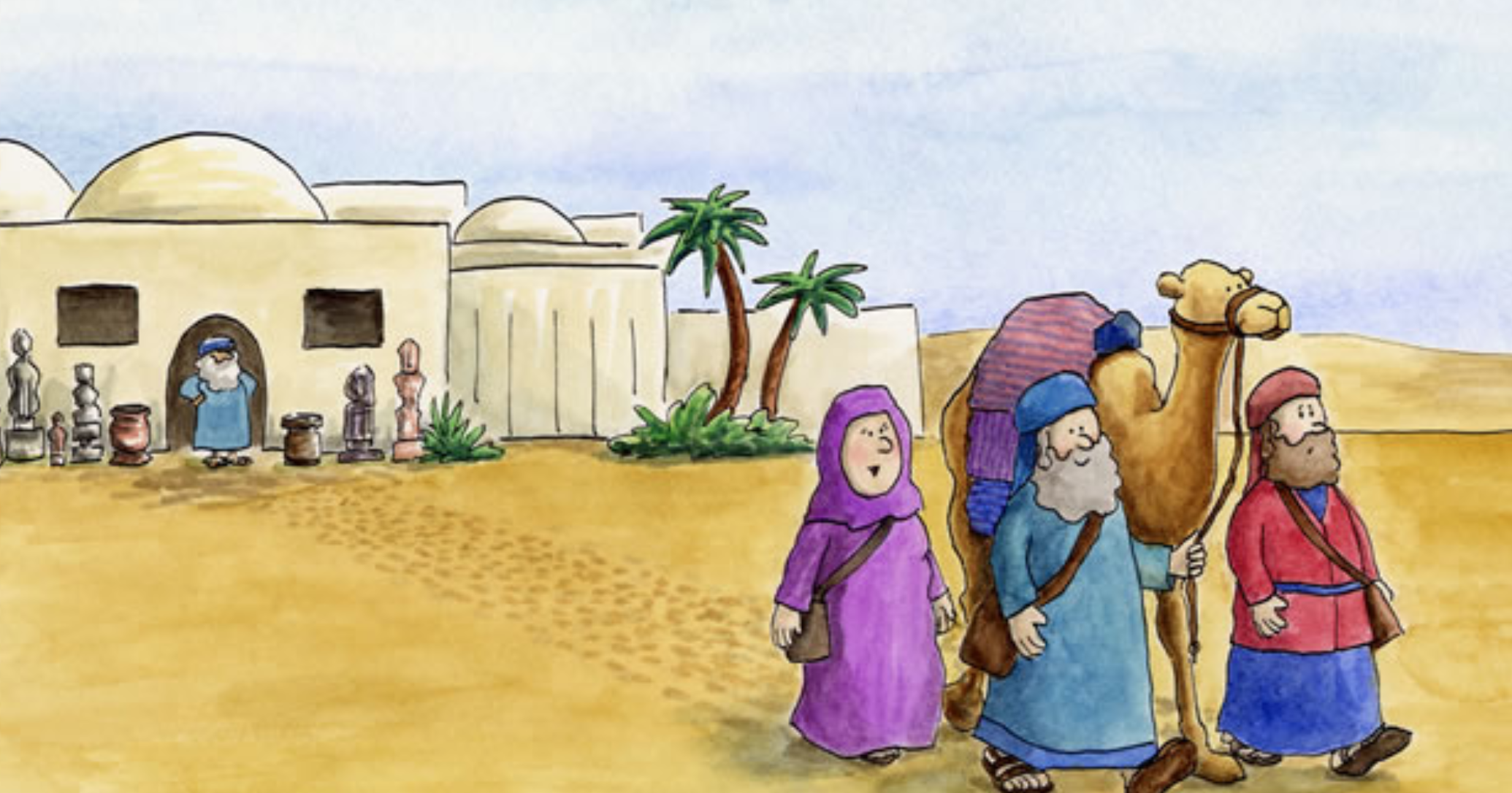Bonjour / Hello [nickname_else_first_name],
Table of contents
1) Perashat Hashavoua - Rabbi Eli Mansour
2) Halakhat Hashavoua (Halakhot related to day to day life)
Praying Arvit- Hazzan David Azerad
3) Holy Jokes!
1)PERASHAT HASHAVOUA
This Week's Parasha Insight with Rabbi Eli Mansour
Parashat Lech Lecha- Obeying Hashem’s Commands
Parashat Lech-Lecha begins with Hashem’s first words to Abraham Abinu – commanding him to leave his homeland and settle in the Land of Israel.
The Or Ha’haim (Rav Haim Ben-Attar, 1696-1743) raises the question of why the Torah does not mention that G-d appeared to Abraham. Normally, when G-d speaks to a prophet for the first time, it says that He first appeared to the prophet and then spoke to him. Here, however, we are told that G-d spoke to Abraham, and only later, when Abraham reached Eretz Yisrael, the Torah relates that G-d appeared to him and promised that this land would be given to his offspring (12:7). Why?
The Or Ha’haim answers that Abraham became worthy of beholding G-d’s presence once he fulfilled G-d’s commands. Subsequent prophets, the Or Ha’haim explains, were already rooted in sanctity because they descended from Abraham Abinu. But Abraham himself, who was the first to recognize Hashem, needed to earn the privilege of a prophetic vision through obedience, by obeying a command given to him by G-d. Therefore, G-d did not at first appear to Abraham, but rather spoke to him, commanding him to resettle in the Land of Israel. Once Abraham obeyed and arrived in the land, G-d appeared to him.
The Or Ha’haim’s comments perhaps answer also a different question, regarding the great miracle of Ur Kasdim, where Abraham was saved from a furnace. According to a well-known Midrashic tradition, Abraham was brought before the king, Nimrod, because he publicly renounced idol-worship and insisted on the belief in a single G-d. Even at the threat of death, Abraham refused to rescind his faith. He was thrown into furnace, and he miraculously survived. Curiously, the Torah does not tell this story. It alludes to this miracle through the name "Ur Kasdim" (11:28; see Rashi), as the word "Ur" means "fire," but it is not told explicitly. We would have assumed that this extraordinary display of courage and self-sacrifice would be significant enough to be mentioned to provide us with some background into Abraham Abinu’s character and devotion to G-d. Yet, the Torah omits this episode, and instead begins the story of Abraham with the command that he move to Eretz Yisrael.
The answer, perhaps, is that as great as this display of faith was, it was done voluntarily. Abraham went into the furnace of his own volition, without having been commanded to by G-d. This was certainly inspiring – but a person’s primary obligation is to submit to G-d’s will, to properly and devotedly obey His commands. As the Gemara (Kiddushin 31a) teaches, "Gadol Ha’mesuveh Ve’oseh Mi’mi She’eno Mesuveh Ve’oseh" – one who fulfills a Misva which he is commanded to perform is greater than one who voluntarily fulfills a Misva which he is not commanded to perform. The greatest act we can do as G-d’s servants is to carry out our duties, to fulfill our obligations. Of course, we are encouraged to extend beyond our basic obligations, and to achieve to our maximum potential. But our primary point of focus must be on obedience, humbly obeying Hashem’s commands, and doing all that He instructs us to do.
2) HALAKHAT HASHAVOUA
The Laws of the prayer for Rain, according to the rulings of Rabbi Obadiah Yosef ZT”L
Why do we start praying for rain starting from the seventh of Cheshvan at night?
In Eretz Yisrael, we begin to say Barech Aleinu starting the 7th of the month of Cheshvan starting in the prayer of Arvit until the prayer of Mincha erev Yom Tov of Pesach.And even though it would have been appropriate to start asking/praying for dew and rain immediately after the holiday, the Sages decided to delay the prayer of dew and rain until 15 days after the holiday, so that the pilgrims (the people who were at the time in Yerushalayim in Beit Hamikdash ,as they would go 3 times a year during the 3 Chagim Pesach –Sukkot -Shavuot)would have enough time to reach the district of their destination, and the rain would not stop them.The sages assumed then that 15 days were needed to arrive (provided the transportation of those days) from Jerusalem to the Euphrates River, the border of the state of Babylon, where the settlement was the furthest from Jerusalem. It is because of the pilgrims, they delayed the prayer of Tal Umatar to the seventh of Cheshvan.
When do we say "Barech Aleinu"?
The custom of the Sephardim and Edot Hamizrach is to say in the summer "Barechenu " and in the winter "Barech Aleinu", and include in it a request for dew and rain, and it is a correct custom according to Kabbalah.Some Ashkenazi customs say throughout the year "Barech Aleinu", but in winter they include in it "Veten Tal Umatar Livracha".
Bevirkat Shabbat Shalom Umevorach
David Azerad
3) HOLY JoKeS!!
Selection of funny snippets, loosely related to this weeks parashah, to brighten your day









